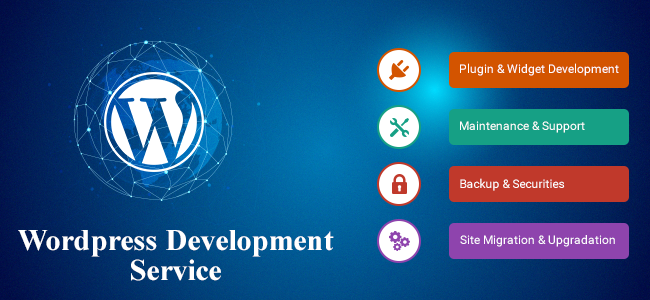
In the ever-evolving landscape of web development, WordPress stands tall as a reliable and versatile platform. Its user-friendly interface and vast ecosystem of plugins and themes have made it the go-to choice for millions of websites across the globe. However, to truly harness the full potential of WordPress course, developers need to delve into its advanced features, one of which is the WordPress REST API. In this comprehensive guide, we’ll explore what the WordPress REST API is, how it works, and its significance in modern web development.
Understanding WordPress REST API
WordPress REST API, introduced in version 4.7, revolutionized the way developers interact with WordPress sites. In essence, it allows developers to access and manipulate WordPress content remotely using standard HTTP requests. This means that instead of relying solely on PHP functions and templates, developers can now use any programming language to interact with WordPress sites, opening up endless possibilities for customization and integration.
How Does WordPress REST API Work?
At its core, the WordPress REST API follows the principles of Representational State Transfer (REST), utilizing standard HTTP methods such as GET, POST, PUT, and DELETE to perform CRUD (Create, Read, Update, Delete) operations on WordPress data. By sending requests to specific endpoints, developers can retrieve posts, pages, users, and more, as well as create, update, and delete them as needed.
For instance, to retrieve a list of posts from a WordPress site, a developer can send a GET request to the /wp-json/wp/v2/posts endpoint. Similarly, to create a new post, they can send a POST request to the /wp-json/wp/v2/posts endpoint with the necessary data in the request body.
Significance of WordPress REST API in Modern Web Development
The WordPress REST API opens up a world of possibilities for developers, enabling them to build powerful and dynamic applications that seamlessly integrate with WordPress. Whether it’s creating a headless WordPress site, building a mobile app, or integrating WordPress with third-party services, the REST API provides the flexibility and scalability needed to meet the demands of modern web development.
Leveraging the WordPress REST API for WordPress Courses
For those looking to expand their knowledge of WordPress, understanding the WordPress REST API is essential. With the rise of headless WordPress setups and decoupled architectures, knowing how to interact with WordPress programmatically can give developers a competitive edge. Whether you’re creating custom themes, plugins, or applications, the REST API allows you to leverage WordPress’s robust content management capabilities in new and innovative ways.
WordPress Course: Embracing the Power of WordPress REST API
In a WordPress course, students can delve into the intricacies of the WordPress REST API and learn how to harness its power to build advanced WordPress applications. From retrieving and displaying WordPress content to creating custom endpoints and handling authentication, a WordPress course that covers the REST API equips students with the skills needed to take their WordPress development to the next level.
The Next Level: Advanced WordPress Course
For those already familiar with the basics of WordPress development, an advanced WordPress course that focuses on the REST API can provide valuable insights and techniques for building more complex and sophisticated applications. Topics such as authentication, error handling, performance optimization, and security best practices take center stage, empowering developers to tackle real-world challenges with confidence.
Conclusion
The WordPress REST API represents a paradigm shift in WordPress development, empowering developers to build dynamic and interactive experiences that go beyond traditional WordPress websites. By understanding the fundamentals of the REST API and its implications for modern web development, developers can unlock new opportunities and push the boundaries of what’s possible with WordPress. Whether you’re just starting your WordPress journey or looking to level up your skills, embracing the WordPress REST API is the key to mastering the art of WordPress development.








